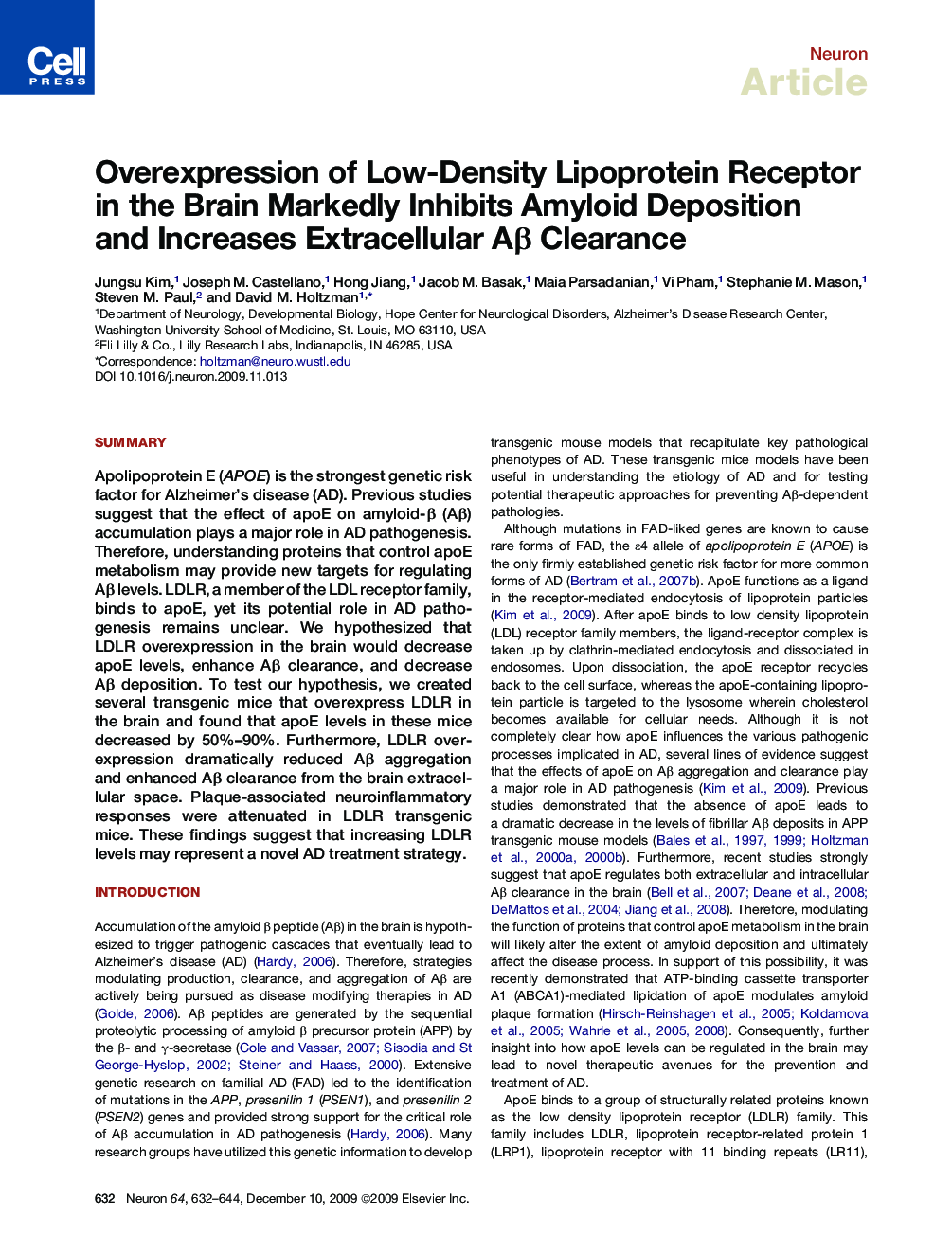| Article ID | Journal | Published Year | Pages | File Type |
|---|---|---|---|---|
| 4321700 | Neuron | 2009 | 13 Pages |
SummaryApolipoprotein E (APOE) is the strongest genetic risk factor for Alzheimer's disease (AD). Previous studies suggest that the effect of apoE on amyloid-β (Aβ) accumulation plays a major role in AD pathogenesis. Therefore, understanding proteins that control apoE metabolism may provide new targets for regulating Aβ levels. LDLR, a member of the LDL receptor family, binds to apoE, yet its potential role in AD pathogenesis remains unclear. We hypothesized that LDLR overexpression in the brain would decrease apoE levels, enhance Aβ clearance, and decrease Aβ deposition. To test our hypothesis, we created several transgenic mice that overexpress LDLR in the brain and found that apoE levels in these mice decreased by 50%–90%. Furthermore, LDLR overexpression dramatically reduced Aβ aggregation and enhanced Aβ clearance from the brain extracellular space. Plaque-associated neuroinflammatory responses were attenuated in LDLR transgenic mice. These findings suggest that increasing LDLR levels may represent a novel AD treatment strategy.
